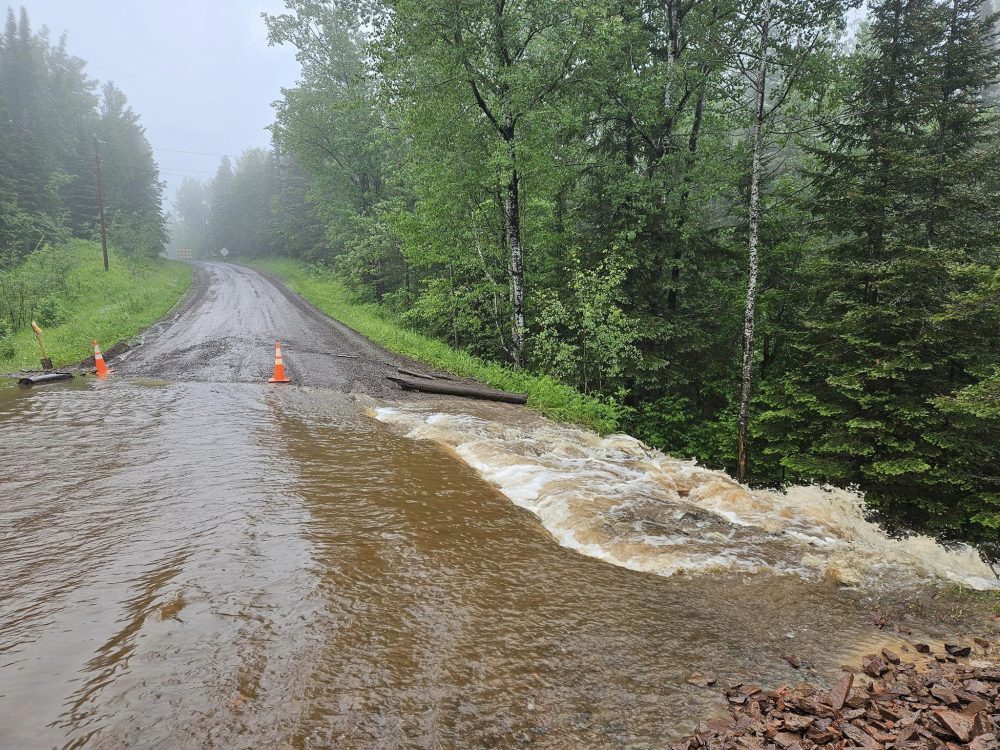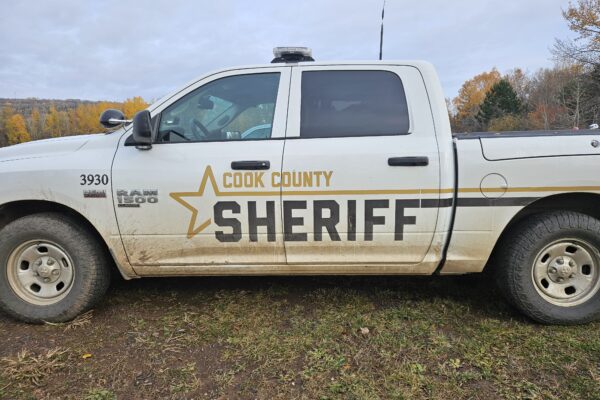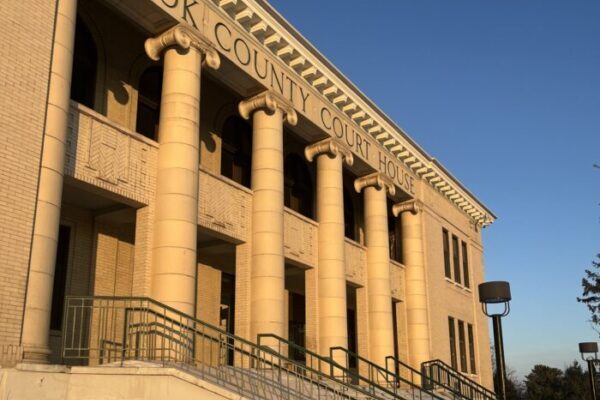Highway Department talks impact of increased extreme weather on county roads
As instances of extreme weather have increased, the job of planning highway infrastructure maintenance has become more complicated.
County Highway Engineer Robbie Kimmel-Hass and Maintenance Superintendent Matt Nesheim told WTIP that the changing weather patterns have meant having to adjust their strategies for keeping the roads and bridges under county jurisdiction in good condition.
“Cook County has always dealt with weather, you know, and so we’ve always had these kind of conditions. However, it does seem like the variability is increasing,” Nesheim said. He explained that the increase in drought conditions has made routine maintenance on unpaved roads more difficult, and in some cases, not possible. Delaying or skipping that maintenance means roads deteriorate faster.
Nesheim said that summer droughts are not the only weather that makes the department’s job harder. He said the variability in snow conditions can also cause issues for roads unpaved roads.
Kimmel-Hass added that beyond the actual surfaces of the county’s roads, another important factor in managing infrastructure and weather events is drainage. He mentioned culverts, ditches, and bridges, saying that the department has had to adjust how they approach sizing infrastructure to try to anticipate more extreme weather.
In recent years, major rain events during the summer have caused washouts and flooding on some roads in particular, where culverts are too small or ditches are not deep enough. Nesheim said, “I think washouts are a really evident sign of, like, the health of a road. And so a lot of our Cook County roads are, and I hate to admit this, sub standard…Water doesn’t have a place to go. Like, we don’t have adequate ditches. And part of that’s just because of kind of the rough terrain that they built roads on.”
Nesheim and Kimmel-Hass gave the examples of roads that were built across bedrock, or in the other extreme, across swamps. The older roads in the county that have been built across the more difficult terrain, may have been constructed with infrastructure that was sufficient at the time, but which is now inadequate. This has meant more calls to the highway department for emergency repairs to places where the road has failed. “Luckily, if it’s on the county road system, we have equipment and we have personnel and we can respond quickly,” Nesheim said. “That’s not always the case on other jurisdictions.”
In addition to the day-to-day maintenance of the county’s roads, Kimmel-Hass said the changing climate has impacted the planning and designs that goes into roadwork. “The 100 year event that we typically design to is now turning into, like a 70 or even a 50 year event. And so they’re happening more frequently,” he said.
Kimmel-Hass went on to explain that planning for larger projects can also come with a larger price tag. “Even when we talk about getting other funds from outside of the county,” he said, “Whether it’s bridge bonds or other state or federal grants, that dollar amount we have to ask for just keeps going up and up and up with these, with these events.”
While they are able to respond quickly to weather events at this time, Nesheim and Kimmel-Hass said they also consider the services they aim to maintain when looking at the future and the increase in severe weather. Nesheim said, “Ultimately it’s, it’s level of service. So, so how quickly can the public expect us to be able to respond if the number of events is increasing on average?”
While weather events have brought some of the infrastructure issues into focus, the pair also mentioned that they are watching factors like changes in usage rates. Nesheim mentioned the changes on the East end of the county. With much of the available remaining land for sale or development, the department is considering how increased use of some roads in that area could impact maintenance needs.
WTIP’s Kirsten Wisniewski spoke with Highway Engineer Robbie Kimmel-Hass and Maintenance Superintendent Matt Nesheim live on Daybreak. Audio of the interview is below.














